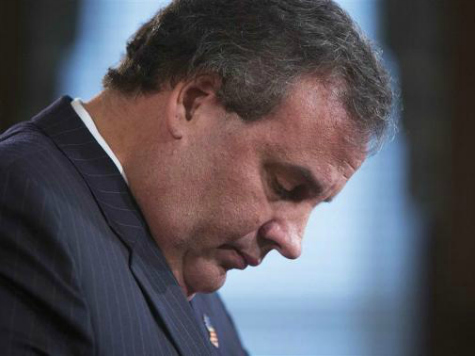
Standard and Poor’s Credit Rating Service announced on June 2nd that the ratings on New Jersey’s general obligation (GO) bonds, appropriation-backed, and moral obligation debt were placed on Credit Watch with negative implications. The warning means that S&P could lower the ratings within the next 60 to 90 days depending on the outcome of the state’s budget deliberations and other developments.
Only California and Illinois currently have lower credit ratings than New Jersey. But according to S&P comments, New Jersey’s financial situation seems to be rapidly deteriorating.
Standard & Poor’s cut New Jersey’s credit rating by one notch in April to A+, one of the lowest ratings in the country. That was before Gov. Chris Christie’s Administration announced a big miss in its revenue forecast for the current and upcoming fiscal years. The two-year budget deficit is now estimated at $2.7 billion. S&P noted that New Jersey’s deteriorating financial condition is unique compared to other states:
Almost five years after the official start of the economic recovery, New Jersey continues to struggle with a growing structural imbalance and stands in stark difference to many of its peers who registered sizeable budgetary surpluses in fiscal 2013. Although the weaker than forecasted revenue performance is not unique to New Jersey, in our view the magnitude of the state’s overall structural imbalance as well as the measures taken to address annual budgetary shortfall have implications for liquidity and the state’s liability profile. We believe the state’s decision to reverse course on its pension reform is the result of a revenue forecast that is not aligned with current economic conditions in the state, rapidly growing fixed costs, and limited flexibility with which to address any significant deviations from the forecast.
S&P is especially concerned that the state is unwilling to make the type of serious changes to rectify New Jersey’s underfunded pension and retiree healthcare benefits: “Although in his State of the State and budget messages, the governor called for additional pension reform efforts, there has been no formal proposal and legislative support for another round of pension reform is unclear.”
Gov. Christie changed the funding formula for the state’s pension contribution to retroactively cancel a $93.7 million in budgeted pension payments due in June, cut next year’s pension bill by $150 million, and put $900 million less into the pension system that is already $51 billion underfunded. Over a 30-year period, the governor’s formula changes are expected to swell the state’s unfunded pension liability by 10% according to actuaries for the state’s pension funds.
In addition to these scheduled payments, S&P is concerned New Jersey does not have the cash on hand to make its reduced $695 million pension payment due this month:
The constitution requires the governor to adopt a balanced budget and to end the year in balance. This is important because the state has approximately $3.2 billion-primarily its tax and revenue anticipation notes ($2.6 billion TRANs) – said he intends to cut two payments meant to shore up the solvency of New Jersey’s public employee pension plan — from a combined $3.8 billion down to just $1.38 billion. But S&P believes those actions could be subject to court challenges:
Prior to the pension reform act of 2011, several New Jersey governors, including Gov. Christie, had underfunded the state’s pension systems. However, the pension reform law (Chapter 78, P.L 2011) includes a provision that clearly defines the annual required payment as the normal cost plus the amortization of the unfunded liabilities and allows for pensioners or the plan’s board of trustees to sue in the instance of non-payment. Although several New Jersey workers’ unions have announced their intentions to sue to ensure that the pension payment is made, to the best of our knowledge, there have been no lawsuits filed to date. However, given what is at stake, we believe that this is a question of when, and not if, a lawsuit is filed. In our experience, pension litigation tends to be highly contested, drawn out, and typically gets appealed to the highest courts and could leave the state dealing with a contingent liability for years to come. In addition to any cost for
Politics Chris Christie Reuters Unions

COMMENTS
Please let us know if you're having issues with commenting.